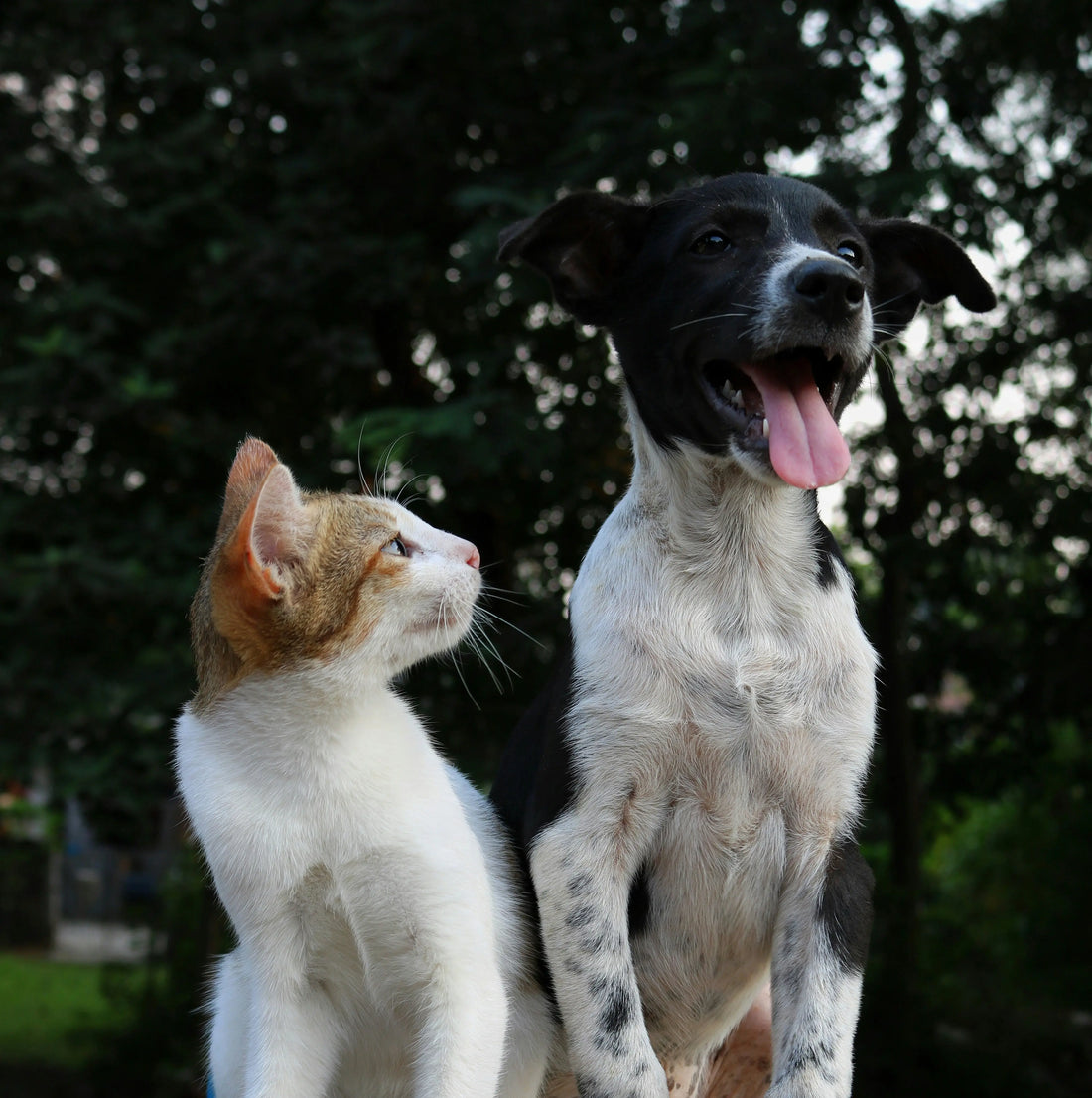
Are dogs smarter than cats?
Share
Are Dogs Smarter Than Cats? What Science Really Says
Yes, they are. We knew it, and now science has proved it.
The debate has probably been raging for as long as we’ve been feeding them. It’s pretty obvious we are dog people but big questions still remain. Who’s the better pet? Who’s more loyal? And, of course, who’s smarter? While cats (allegedly) have their charms, a growing body of research suggests that dogs take the crown when it comes to brainpower. So, as a dog person, you can officially say, “I told you so!”
The science behind brainpower
A study led by Suzana Herculano-Houzel, a neuroscientist at Vanderbilt University, tackled this age-old question using a straightforward metric: the number of neurons in the brain. Neurons are the cells responsible for processing information, so the more neurons an animal has, the greater its potential for complex thought, learning and decision-making.
When researchers compared the brains of dogs and cats, they found that dogs have around 530 million cortical neurons, while cats have about 250 million. To put that in perspective, humans have approximately 16 billion cortical neurons. This means that dogs have more than double the brainpower of cats when it comes to processing and storing information. According to Herculano-Houzel, the number of cortical neurons "determines the richness of an animal’s inner mental state and their ability to predict what will happen based on past experience."
What makes dogs so smart?
Dogs’ intelligence isn’t just about the number of neurons, they’ve evolved alongside humans for thousands of years, developing unique skills and abilities that set them apart. Here are some of the key reasons dogs are considered so smart:
- Social intelligence: Dogs are highly social animals and their ability to understand and respond to human emotions is remarkable. They can read our facial expressions, interpret our tone of voice and even pick up on subtle body language cues. This emotional intelligence allows them to form strong bonds with humans and makes them excellent companions.
- Problem-solving skills: Dogs are known for their problem-solving abilities, whether it’s figuring out how to open a door, find hidden treats or navigate an agility course. Their brains are wired for learning and they thrive on mental challenges. Many breeds, such as Border Collies and German Shepherds, are particularly adept at tasks that require focus and strategy.
- Obedience and training: Unlike cats, who are famously stubborn and independent, dogs are eager to please. This makes them much easier to train. From basic commands like "sit" and "stay" to advanced tricks and tasks, dogs have a knack for understanding what we want them to do and doing it.
How do dogs compare to cats?
While cats are undeniably clever in their own way (and we wouldn’t dare suggest otherwise to a cat lover), their intelligence tends to manifest differently. Cats are solitary hunters by nature, which means their problem-solving abilities are more focused on individual tasks, like stalking prey or finding food.
Dogs, on the other hand, evolved as pack animals and later as human companions. This social structure encouraged them to develop cooperative and communicative skills, which are essential components of intelligence. Their ability to work in teams, follow commands and adapt to different environments gives them a distinct advantage in the smarts department.
What does intelligence mean for dogs?
A dog’s intelligence isn’t just about raw brainpower, it’s also about how they use it. Here are some examples of how dogs’ intelligence shines in everyday life:
- Service dogs: From guiding the visually impaired to detecting seizures or low blood sugar, service dogs demonstrate incredible cognitive abilities and emotional intelligence. Their capacity to learn complex tasks and stay focused makes them invaluable helpers.
- Police and military dogs: Dogs trained for search-and-rescue missions, bomb detection or tracking criminals showcase their problem-solving skills and acute sense of smell.
- Therapy dogs: Emotional support dogs provide comfort and companionship to people dealing with anxiety, depression or trauma. Their ability to pick up on human emotions and respond appropriately highlights their social intelligence.
Are there exceptions?
Of course, intelligence varies from one dog (or cat) to another. Some dogs are naturally more focused and eager to learn, while others prefer to nap their days away. Similarly, some cats defy the stereotype of aloofness and show remarkable problem-solving skills and affection.
Breed also plays a role in canine intelligence. Working breeds like Border Collies, Poodles, and Labrador Retrievers often rank among the smartest dogs, thanks to their history of performing tasks alongside humans. However, even the quirkiest, laziest dog has the ability to learn and form deep connections with their owners (unlike a cat).
If you love learning how dogs think and thrive, explore our range of all-natural supplements designed to support your dog’s long-term health and happiness. Shop all supplements.
